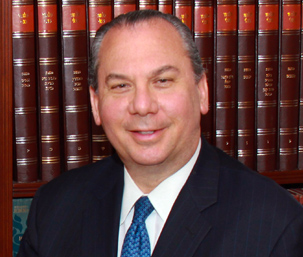
The Times of Israel
By Rabbi Marc Schneier
As we approach Yom Kippur, the Day of Atonement, it is worthwhile to shed some light on a colorful, but relatively low profile ritual in the Yom Kippur liturgy known as the Azalzel, or the ritual of the two goats. This is a modern explication of a ceremony performed in biblical times in the Temple in Jerusalem in which the High Priest sacrificed one goat and set another one free into the desert of Judea in order to expiate the sins of the People of Israel. This second goat was an (e)scape goat, the origin of the modern-day term ‘scapegoat.
By ritually sending the scapegoat into the desert, carrying the collective sins of the entire nation with it, the Israelites avoided the all-too-human tendency to blame others for their own mistakes and moral failings. The overarching theme of Yom Kippur is accepting personal responsibility for our lives and not looking to blame others.
In fact, scapegoating is a universal human failing. For many individuals, societies and nations, which find it difficult to face up to their own problems, it is much easier to blame others—often those defined as ‘outsiders’, and to attribute sinister motives to them.
Ironically, given that the Jews invented the ‘scapegoat’ concept and have worked hard through the centuries not to succumb to it, for the past 2000 years, they themselves have often been cast in exactly that role. For the rulers of medieval and early-modern Europe it was all too easy to demonize a group of classic outsiders like the Jews, who already stood falsely accused by official Church doctrine of having been responsible for the crucifixion of Jesus, for a variety of other supposed crimes such as poisoning wells or killing Christian children to use their blood in the baking of matzoh. The demonization of the Jews found its most savage and comprehensive expression in Nazi depictions of Jews as subhuman, paving the way for the mass incineration of most of European Jewry in the gas ovens of Auschwitz and Treblinka.
Unfortunately, scapegoating of the Jews is alive and well in our own time as well and has spread from its traditional bastion in Europe to the Middle East, Asia, Latin America and elsewhere. It is even a not-negligible factor even in the United States, where in recent days we have seen unleashed a scapegoating of the Jewish community classifying its leadership as war mongers in pushing President Obama to bomb Syria. On the contrary, it was the Obama Administration that turned to the America-Israel Public Affairs Committee (AIPAC) and pleaded for that organization to lobby wavering senators and congresspeople.
Here are some of the more egregious – and outlandish – examples over the past 12 months of blaming Jews for a variety of ills with which they obviously had nothing to do:
It is important to note however that the Jews are not the only people or faith community that has been scapegoated by bigots and unscrupulous demagogues looking to whip up popular hysteria against ‘outsider’ communities. Since 9-11, Islam and the entire world community of more than 1.5 billion Muslims have increasingly been blamed for the violent acts of an extremist few. In the United States, we have seen the disturbing rise of demonization directed at peaceful and law-abiding American Muslims who are characterized by Islamophobes as seeking to subvert America from within.
Here are some examples:
Jews, who know only too well what it feels like to be wrongfully scapegoated, must stand with our Muslim brothers and sisters when they are subjected to the same kind of defamation and character assassination. Let us honor the message of Yom Kippur and the tradition of Azalzel by taking individual responsibility for our own lives and collective responsibility for the society we share with other ethnicities and faith groups. It is critical that we never give in to the temptation to scapegoat the other who, like ourselves, is an integral part of the great mosaic of humanity.
 Marc Schneier
Marc Schneier
Rabbi Marc Schneier is the president and founder of the Foundation for Ethnic Understanding. A trailblazer in the field of Muslim-Jewish relations, Schneier created and spearheaded the annual Weekend of Twinning’s of Mosques and Synagogues across the globe; the annual meetings of the Gathering of European Muslim and Jewish Leaders (GEMJL) in Paris and Brussels; multiple unity missions to the United States by Muslim and Jewish Leaders from around the world; and the first Summit of Rabbis and Imams. Rabbi Schneier and Imam Shamsi Ali are the co-authors of Sons of Abraham: A Candid Conversation about the Issues that Divide and Unite Jews and Muslims.
Copyright © 2025 Foundation For Ethnic Understanding. All rights reserved. | Privacy Policy